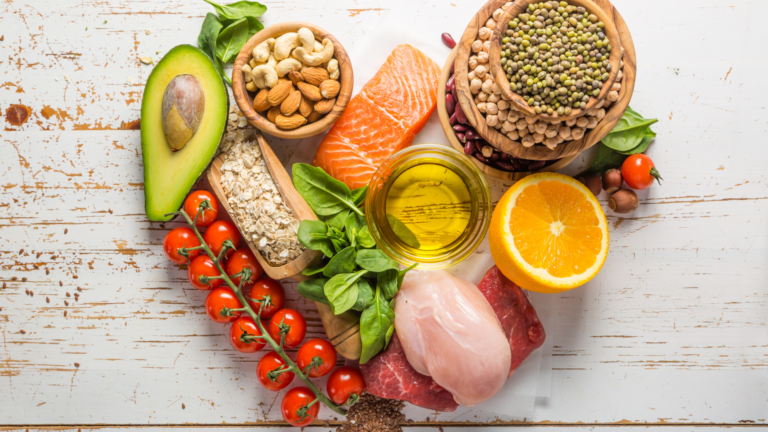You’ve been on a low FODMAP diet for the last 4 weeks & you feel great! Woohoo! For the first time in years your gut is calm and your using the bathroom normally. What’s not to love. And why would you change anything now?
You probably know by now the low FODMAP diet is not a diet you go on and stay on forever. It’s a three step process that is designed to help you identify the foods that are involved in that prickly monster in your gut and which foods are well tolerated and can be enjoyed without causing problems. You can read more about the 3 phases of low FODMAP here.
Phase two (which you are up to now) can be scary. I know, I’ve been there too. And especially if you’ve had a dramatic improvement. But by giving it a go, you will get more food freedom, improve your knowledge of your body and how it is affected by food and improve your ability to balance all of this.
The other piece of good news is that if you’ve had good results on phase one of the low FODMAP diet, you now have a baseline diet that you can return to at ANYTIME and be confident that your gut will settle. So here are 5 reasons to reintroduce FODMAPs.
1. Identify which fodmap groups you do not need to restrict.
Not all FODMAP groups are created equal and different FODMAP groups cause problems for different reasons. This is why some people are sensitive to some FODMAP groups and not others and why some FODMAPs cause one symptom and others cause something else. Only reintroducing FODMAPs (however slowly you go) will tell you what foods at what amounts you do tolerate and do not need to avoid.
2. Improve gut transit.
If you’ve found that low FODMAP has slowed your bowel down, you’re not alone. One of the reasons that FODMAPs cause loose or watery stools is because certain FODMAPs attract water into the gut. If you full the gut up with water, the result is kind of like a river during heavy rains. Watery and fast! Going low FODMAP reduces the amount of water in the gut and can leave it dry and slow. Think about a river bed during a drought.
This is why low FODMAP doesn’t always help with constipation and can even make it worse. Adding back small amounts of these FODMAP groups (fructose, lactose & polyols) can help you find the balance between enough FODMAPs to keep things moving but not so many that you move too fast.
3. Look after your gut microbiome.
Ok, so I admit, this is the 1st reason the dietitian in me gets excited about reintroduction. There are lots of things we are still learning about gut microbiome in healthy people, let alone those with IBS. But there are a few things that we are confident of:
- A healthy gut microbiome is important to immunity, mental health and minimising inflammation in the body and reducing risk of chronic diseases like heart disease and diabetes
- A healthy gut microbiome contains an abundance of bacteria – that’s lots of bacteria
- A healthy gut microbiome contains a diversity of bacteria – that’s lots of different kinds of bacteria
The thing with gut bacteria is that they are picky eaters. And if they don’t get the food that they like, they starve and die off. The American Gut Project taught us that the more variety of plant foods there are in your diet, the more abundant and divers your gut microbiome.
We also know that as little as a few weeks on a strict low FODMAP diet results is less abundance and less diversity of gut microbiota. So, staying strictly low FODMAP, especially if you don’t actually need to, is potentially detrimental to gut microbiome and long term health and wellbeing.
4. Look after your food relationship & mental health.
And this is the 2nd reason my inner dietitian thinks reintroduction is important. Food isn’t just about nutrition. Food is enjoyable, pleasurable, social, celebratory and more. Food brings us together and connects us with other people.
Being on a restricted diet interferes with social situations and is isolating. Food restriction has also been shown in research to result in feelings of missing out and binging. This is also why weight loss diets generally fail.
As a dietitian, I know that your mental health and your connection with your loved ones is just as important as nutrition. So if we can reduce the amount of restriction in your food life, without worsening your IBS symptoms, that can only ever be a good thing.
5. Maximum variety & minimal symptoms.
Ultimately, above all, this is what we want to achieve, and what the FODMAP diet as a whole is designed to accomplish. Only reintroduction can help you identify the foods you tolerate well and what your threshold is for the ones you don’t.
Final Thoughts:
Reintroduction is an important part of low FODMAP. It will improve your knowledge of your body resulting in a predictable gut and improved confidence in your food choices.
If you’re wary of reintroducing, that is very normal and that’s ok. We’re here to help. Everyday Nutrition dietitians are all FODMAP trained and we are happy to help you go forward whether it’s just dipping your toe in to test the water or jumping the deep end if that’s what you’re up for.







